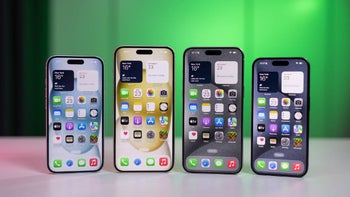Apple accused of using "blood minerals" for iPhones from a war-torn zone in Congo

"Blood Diamond" is more than a 2006 Leonardo DiCaprio flick – sadly, this is a very real phenomenon. This term describes diamonds that are mined in war zones and sold to finance armed conflict against governments. These diamonds are often obtained through forced labor and exploitation.
Now, Apple is being accused by Congo over conflict minerals used in iPhones.
The Democratic Republic of Congo has accused Apple of using illegally exported minerals from the war-torn east of the country, challenging the iPhone maker’s assertions that it carefully verifies the origins of materials in its devices.
Lawyers for the DRC government have written to Apple chief executive Tim Cook with a series of questions.
In the letter, France- and US-based lawyers for the DRC say that Apple’s iPhones, Mac computers and other accessories are "tainted by the blood of the Congolese people".
The lawyers representing the DRC say they met with President Félix Tshisekedi in Kinshasa in September and have been retained by the government to investigate the illegal exportation of so-called "3T" (tin, tungsten, and tantalum materials from Congolese territory.
Tin, tungsten, and tantalum are critical in the manufacturing of smartphones and Apple’s sourcing of the minerals has long been under scrutiny. The iPhone maker has increasingly put claims of environmental and social responsibility at the heart of its marketing campaigns.
A Congolese mining belt running along the DRC’s borders with Uganda and Rwanda holds some of the world’s largest deposits of coltan (a dull black metallic ore from which the elements niobium and tantalum are extracted).
This mineral-rich region is currently beset by fierce fighting between government forces and the M23 rebel group. The UN, US, and EU say M23 is backed by neighboring Rwanda.
In the letter to Cook, the DRC’s lawyers say Apple’s claims that it verifies the origins of these materials "do not appear to be based on concrete, verifiable evidence", alleging the company relies on suppliers based in Rwanda.
Now, Apple is being accused by Congo over conflict minerals used in iPhones.
Lawyers for the DRC government have written to Apple chief executive Tim Cook with a series of questions.
In the letter, France- and US-based lawyers for the DRC say that Apple’s iPhones, Mac computers and other accessories are "tainted by the blood of the Congolese people".
An Apple spokesman declined to comment on the letter. Apple’s most recent disclosures on the use of so-called conflict minerals say the company has "no reasonable basis for concluding" that any of its tin, tungsten and tantalum smelters or refiners "directly or indirectly financed" armed groups in the DRC or adjoining countries.
The lawyers representing the DRC say they met with President Félix Tshisekedi in Kinshasa in September and have been retained by the government to investigate the illegal exportation of so-called "3T" (tin, tungsten, and tantalum materials from Congolese territory.
Tin, tungsten, and tantalum are critical in the manufacturing of smartphones and Apple’s sourcing of the minerals has long been under scrutiny. The iPhone maker has increasingly put claims of environmental and social responsibility at the heart of its marketing campaigns.
A Congolese mining belt running along the DRC’s borders with Uganda and Rwanda holds some of the world’s largest deposits of coltan (a dull black metallic ore from which the elements niobium and tantalum are extracted).
In the letter to Cook, the DRC’s lawyers say Apple’s claims that it verifies the origins of these materials "do not appear to be based on concrete, verifiable evidence", alleging the company relies on suppliers based in Rwanda.










Things that are NOT allowed: